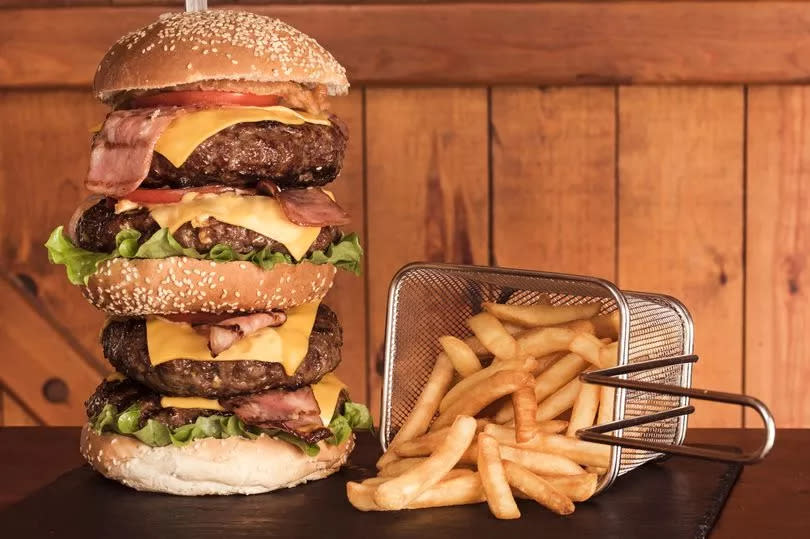Ultra-processed food, alcohol and tobacco are killing millions each year, WHO says

A worrying report from the World Health Organization (WHO) warns that ultra-processed foods, alcohol, tobacco and fossil fuels are directly responsible for an estimated 2.7 million deaths across Europe each year.
The global health body pinpointed "powerful industries" as major drivers of bad health and premature death due to their influence on government policies and efforts to reduce prevalent cases of cancer, heart diseases and diabetes.
Issuing a call to action in the new report, the WHO urged for "strict regulation to curb industry power". It emphasised the need for governments to advance health policies which are often "challenged, delayed, weakened or stopped" by these powerful industries.
According to the WHO, "more than 7,400 people are dying every day" in its European region due to harmful products and practices led by commercial industries.
The report revealed: "These commercial products contribute to 24% of all deaths, including significant mortality from cardiovascular diseases (51.4%) and cancer (46.4%)."
In total, the deadly quartet of tobacco, alcohol, ultra-processed food and fuel industries is held wholly or partly accountable for 2.7 million deaths annually in Europe, as the document detailed.
On a larger scale, the global picture reveals a grim reality where tobacco, ultra-processed foods, fossil fuels and alcohol lead to 19 million deaths per annum, representing 34% of total worldwide deaths.

Drilling down into specifics, the WHO report shared that smoking causes a staggering annual death toll of 1.15 million in Europe, alongside alcohol at 426,857 deaths, diets rich in processed meats at 117,290, and diets high in salt resulting in 252,187 fatalities.
According to the WHO, the "primary interest of all major corporations is profit", often equating a sizable market share to "often also translates into political power".
It further stated: "Regardless of the product they sell, their (industry) interests do not align with either public health or the broader public interest."
Any policy that could most likely affect their profits and sales would thus pose a threat, and these corporations should have no involvement in the development of said policies.
Considering rules around tobacco as the only exception, the report revealed that "global efforts to regulate harmful marketing have, at best, been underwhelming".
It noted: "While legal measures regulating alcohol and unhealthy food marketing are in existence in several countries across the WHO European region and across the world, these are often narrow in scope, focused on specific media or settings, certain population groups or on specific marketing techniques, and therefore confer insufficient protection."
Dr Hans Kluge, WHO regional director for Europe, remarked: "Four industries kill at least 7,000 people in our region every day.
"The same large commercial entities block regulation that would protect the public from harmful products and marketing, and protect health policy from industry interference.
"Industry tactics include exploitation of vulnerable people through targeted marketing strategies, misleading consumers, and making false claims about the benefits of their products or their environmental credentials.
"These tactics threaten public health gains of the past century and prevent countries from reaching their health targets."
Rebeca Fernandez, science director at FoodDrinkEurope, which represents the food and drink industry, strongly disagreed with the comparison made in the study, saying: "To connect the consumption of processed foods with the tobacco and fossil fuel industries is irresponsible and outrageously misleading. We all need food and we all need processed food.
"Unfortunately the WHO report does not acknowledge that there is no agreed definition of what ultra-processed foods are, let alone their impact on health, which is why last year the UK Government's own independent Scientific Advisory Committee on Nutrition concluded the evidence so far to be insufficient to use UPF terminology to define public health guidelines.
"Instead, well-established food nutrition science the world over tells us that the best way to tackle obesity and non-communicable diseases is to focus on the nutrition content of a food and how often you consume it, in conjunction with what type of lifestyle you lead.
"That's why food and drink makers here in Europe are playing their part by reformulating products to cut salt, fat, and sugars whilst boosting fibre and micronutrients."
Join the Daily Record's WhatsApp community here and get the latest news sent straight to your messages.

 Yahoo News
Yahoo News 
